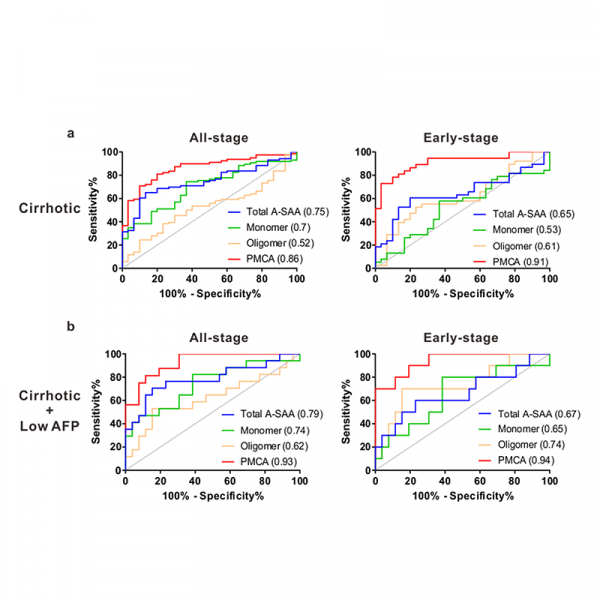
陳韻如
Scientific Reports
April 06, 2022
Regular hepatocellular carcinoma (HCC) surveillance by ultrasonography in combination with the α-fetoprotein (AFP) examination is unsatisfactory in diagnostic sensitivity for early-stage HCC especially in cirrhotic patients. We conducted a prospective study in a tertiary medical center in Taiwan and consecutively collected serum samples from patients with chronic hepatitis, liver cirrhosis (LC), or HCC for new biomarker discovery. Overall, 166 patients were enrolled, including 40 hepatitis, 30 LC, and 96 HCC. Four acute-phase serum amyloid A (A-SAA) derived biomarkers including total A-SAA, A-SAA monomer and oligomer, and protein misfolding cyclic amplification (PMCA) signal were measured and compared between patients with and without HCC. A-SAA biomarkers significantly increased in the HCC group when compared to the hepatitis and LC groups, and generally increased in more advanced tumor stages. Among A-SAA biomarkers, the area under the receiver operator characteristic curves (AUROCs) for PMCA signal in discrimination of all-stage and early-stage HCC were 0.86 and 0.9 in cirrhotic patients, which is comparable to AFP. For cirrhotic patients with low AFP (< 7 ng/mL), PMCA signal maintained good capacity in prediction of early-stage HCC (AUROC: 0.94). Serum A-SAA and its prion-like property showed a potential to complement AFP in detection of early-stage HCC.


